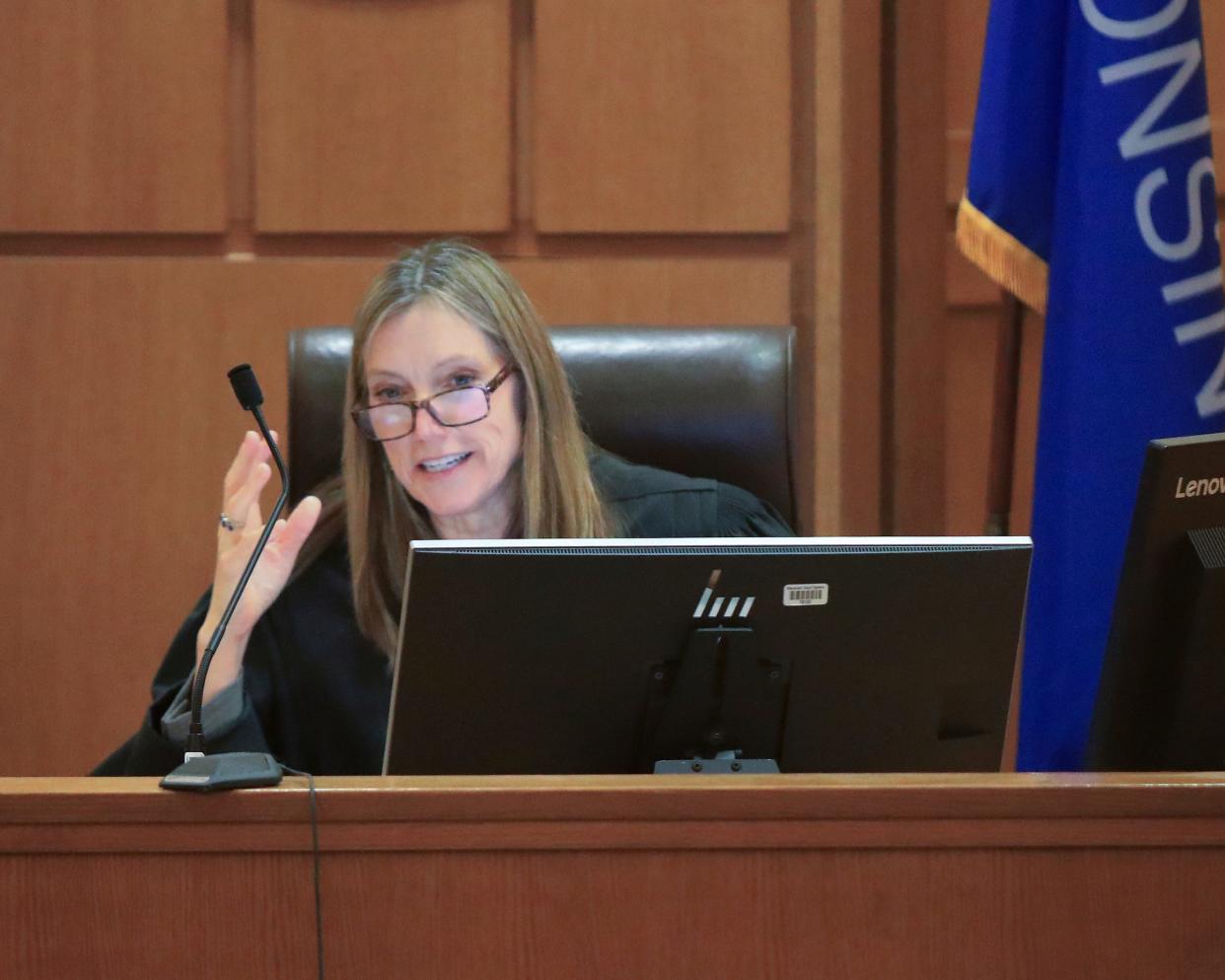Dane County judge allows abortion lawsuit to proceed, says 1849 law does not ban abortions

MADISON - A lawsuit seeking to invalidate a 19th Century-era abortion law at the center of Wisconsin politics may proceed, a Dane County judge said in an order Friday while also signaling she did not believe the law in question bans consensual abortions.
Dane County Circuit Judge Diane Schlipper denied a motion to dismiss the lawsuit from defendant Sheboygan District Attorney Joel Urmanski, who argued in May that Attorney General Josh Kaul, who brought the lawsuit, was asking a judge to perform the duties of lawmakers and was ignoring the fact that lawmakers have put forward language to repeal the original abortion law and decided against passing it.
Schlipper in her Friday order rejecting Urmanski's argument said doctors deserve an answer to which abortion-related state law they should follow now that the U.S. Supreme Court overturned Roe v. Wade in 2022, putting back into effect laws in Wisconsin that were dormant under the 50-year decision.
The judge also signaled she did not believe the law in question, a statute written in 1849, applies to abortions but to feticide.
"There is no such thing as an '1849 Abortion Ban' in Wisconsin. A physician who performs a consensual medical abortion commits a crime only 'after the fetus or unborn child reaches viability …'" she wrote, explicitly adding the law does not prohibit consensual medical abortions.
Kaul and Gov. Tony Evers, both Democrats, filed the lawsuit soon after the U.S. Supreme Court in June 2022 overturned their 1973 decision known as Roe v. Wade that legalized abortion nationwide — a ruling that effectively put back into place the state's original abortion law.
In a tweet, Evers called the order "good news and a critical step in our fight to end our state’s criminal abortion ban and restore the reproductive freedom women had in Wisconsin until #SCOTUS overturned #Roe last June."
Gracie Skogman, legislative director of anti-abortion advocacy group Wisconsin Right to Life, said the order ”is a devastating setback in the ongoing fight to protect Wisconsin’s preborn children, as countless lives have been saved because of (the abortion ban).”“No matter what the courts decide, we will continue to advocate for the protection of life in Wisconsin, including comprehensive care and resources for mothers and their preborn babies,” she said in a statement.
Passed more than a century before the Roe ruling, Wisconsin's abortion law bans doctors from performing abortions in every case except when the mother will die without the procedure. Doctors face up to six years in prison on felony charges and $10,000 in fines if they violate the law.
Kaul argues in the lawsuit that the 1849 law has been invalidated by abortion laws passed since the Roe v. Wade decision. Anti-abortion proponents and attorneys for Republican lawmakers disagree, arguing the original law still stands. The disagreement will be resolved by Schlipper or more likely, under appeal, the state Supreme Court.
The issue was front-and-center in April's state Supreme Court election. The court is controlled by conservatives until this summer when Milwaukee County Judge Janet Protasiewicz replaces retiring conservative Justice Patience Roggensack. Protasiewicz all but promised voters during her campaign this year that she would side with Kaul.
If a judge or justices side with Kaul and rule that the 1849 abortion law was invalidated by subsequently passed abortion regulations, the Department of Justice argues the state's 20-week abortion ban will go back into effect.
Republican lawmakers in Wisconsin passed legislation in recent years under former Gov. Scott Walker that banned abortions after five months of pregnancy and required women to receive an ultrasound before undergoing the procedure.
Between 1996 and 2022, women in Wisconsin seeking abortions also were required to participate in counseling and wait 24 hours before undergoing the procedure.
Kaul and Evers filed the legal challenge in June 2022, asking state courts to clarify whether the 173-year-old ban is still in place.
The lawsuit was filed in Dane County Circuit Court, initially against Republican legislative leaders, and argues the longstanding ban that had been unenforceable since 1973 under Roe v. Wade is still unenforceable because it conflicts with abortion measures state lawmakers have passed since.
Kaul said measures passed by Republican lawmakers setting restrictions on abortions under Roe v. Wade repealed the original abortion law.
But following the U.S. Supreme Court has overturned Roe v. Wade, opponents of abortion and conservative legal experts said the state law passed in 1849 banning abortions was in effect.
Molly Beck can be reached at [email protected].
THANK YOU: Subscribers' support makes this work possible. Help us share the knowledge by buying a gift subscription.
DOWNLOAD THE APP: Get the latest news, sports and more
This article originally appeared on Milwaukee Journal Sentinel: Wisconsin judge allows lawsuit challenging 1849 abortion ban to proceed
